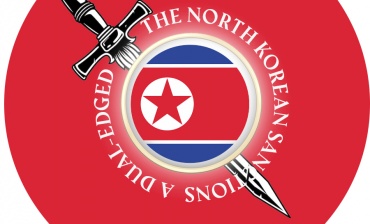North Korea, officially known as the Democratic People’s Republic of Korea, has been a significant focus in the realm of international diplomacy for several decades. The country’s pursuit of nuclear weapons and its record of human rights violations have led to the imposition of extensive sanctions by the United States and the United Nations. However, it is essential to delve deeper into the effectiveness of these sanctions and their broader consequences on the North Korean population.
Historical Context:
North Korea’s history of nuclear tests, ballistic missile launches, and alleged cyber-attacks has triggered a range of international responses. Among these responses, sanctions have emerged as a primary tool, employed both unilaterally by individual countries like the U.S. and multilaterally through the UN.
Key Features of the Sanctions:
Trade Restrictions: The sanctions have specifically targeted North Korea’s main exports, including coal, minerals, and seafood. Additionally, imports, particularly luxury goods and items with potential military applications, have been subjected to restrictions.
Financial Sanctions: Measures have been taken to curtail the regime’s access to the global financial system by imposing sanctions on North Korean banks and their overseas operations.
Travel Bans and Asset Freezes: Key North Korean officials and entities have faced travel restrictions, and their assets have been frozen.
Implications and Effectiveness:
Impact on the North Korean Economy: It is evident that the sanctions have significantly hampered North Korea’s economic growth, given the nation’s limited economic diversification. The reduced foreign currency earnings have strained the regime’s ability to finance ambitious projects and sustain its military capabilities.
Humanitarian Concerns: Unintentionally, the sanctions have intensified the hardships faced by ordinary North Koreans. Despite explicit exemptions for humanitarian aid, the overall decline in trade, coupled with concerns about potential violations, has resulted in limited access to essential goods, leading to food shortages and inadequate medical supplies.
Resilience of the Regime: Notwithstanding the hardships, the North Korean regime has demonstrated remarkable resilience. It has sought alternative trading partners, engaged in illicit trade, and bolstered its internal production capacities to mitigate the adverse effects of the sanctions.
Diplomatic Stalemate: While the primary objective of the sanctions is to bring North Korea to the negotiating table, they have often contributed to a diplomatic impasse. The regime perceives the sanctions as hostile actions, further complicating diplomatic outreach efforts.
Concluding Insights:
The sanctions imposed on North Korea exemplify the inherent complexities associated with employing economic measures to achieve geopolitical objectives. Although they have undeniably exerted economic pressure on the regime, their overall success in driving policy shifts remains uncertain. Furthermore, the unintended humanitarian consequences highlight the challenge of designing sanctions that exert pressure on governments without inadvertently worsening the plight of the very people they aim to protect.
As international stakeholders grapple with the complexities of the North Korean situation, it becomes imperative to develop a nuanced understanding of the dual-edged nature of sanctions – their potential to coerce while unintentionally inflicting harm. Striking the right balance is crucial, where these measures serve strategic goals while minimizing the adverse impact on innocent civilians.
Author: Pooyan Ghamari, Swiss Economist & Visionary







